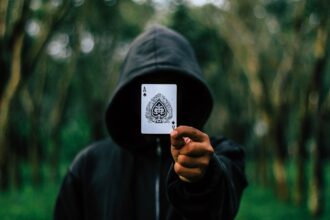Overstimulation hangover is a term that may resonate with you if you’ve ever felt drained after a particularly busy day filled with sensory overload. This phenomenon occurs when your brain and body are bombarded with excessive stimuli, whether from technology, social interactions, or environmental factors. You might find yourself feeling mentally exhausted, irritable, or even physically unwell after a day of constant engagement.
Understanding this concept is crucial, as it can help you recognize the signs and take proactive steps to mitigate its effects. In today’s fast-paced world, where information is constantly at your fingertips and social interactions are often overwhelming, the risk of experiencing overstimulation hangover has increased significantly. You may notice that after a long day of work, attending events, or even spending too much time on social media, you feel a sense of fatigue that is not just physical but also mental.
This hangover can leave you feeling disconnected from yourself and your surroundings, making it essential to understand its implications on your overall well-being.
Key Takeaways
- Overstimulation hangover is a state of mental and physical exhaustion caused by excessive sensory input and stimulation.
- Symptoms of overstimulation hangover include fatigue, irritability, difficulty concentrating, and heightened sensitivity to light, sound, and touch.
- Causes of overstimulation hangover can include prolonged exposure to loud noises, bright lights, crowded spaces, and excessive screen time.
- Overstimulation hangover can have a negative impact on mental health, leading to increased stress, anxiety, and mood disturbances.
- Overstimulation hangover can also affect physical health, leading to headaches, muscle tension, and disrupted sleep patterns.
Symptoms of Overstimulation Hangover
Recognizing the symptoms of overstimulation hangover is the first step toward addressing it effectively. You might experience a range of feelings, including fatigue, irritability, and difficulty concentrating. These symptoms can manifest in various ways, such as headaches or a general sense of malaise.
You may find that your usual coping mechanisms for stress no longer work, leaving you feeling overwhelmed and unable to recharge. Additionally, emotional symptoms can also arise. You might feel anxious or restless, struggling to find peace in quiet moments.
Social withdrawal can become a common response as you seek to escape the chaos that has left you feeling drained. It’s important to pay attention to these signs, as they can serve as indicators that your mind and body need a break from the constant barrage of stimuli.
Causes of Overstimulation Hangover

The causes of overstimulation hangover are multifaceted and can vary from person to person. One significant contributor is the pervasive presence of technology in your daily life. The constant notifications from your phone, the barrage of emails, and the endless scroll of social media can create an environment where your senses are perpetually engaged.
This digital overload can lead to a state of heightened alertness that eventually becomes exhausting. Moreover, social interactions can also play a role in overstimulation hangover. If you find yourself in crowded places or engaging in lengthy conversations without breaks, you may feel mentally drained afterward.
The pressure to maintain conversations and connect with others can be taxing, especially if you are an introvert or someone who requires more downtime to recharge. Understanding these causes can empower you to make conscious choices about your environment and interactions.
Impact of Overstimulation Hangover on Mental Health
| Impact of Overstimulation Hangover on Mental Health |
|---|
| Difficulty concentrating |
| Irritability |
| Anxiety |
| Fatigue |
| Trouble sleeping |
| Decreased motivation |
The impact of overstimulation hangover on your mental health can be profound. When you experience this state frequently, it can lead to increased anxiety and stress levels. You may find it challenging to focus on tasks or engage in activities that once brought you joy.
This mental fog can create a cycle where you feel overwhelmed by your responsibilities, leading to further feelings of inadequacy or frustration. Additionally, prolonged exposure to overstimulation can contribute to burnout. You might notice that your motivation wanes and that you struggle to find enthusiasm for activities you once loved.
This emotional exhaustion can affect your relationships and overall quality of life. Recognizing the connection between overstimulation hangover and mental health is vital for taking steps toward recovery and maintaining a balanced lifestyle.
Impact of Overstimulation Hangover on Physical Health
The effects of overstimulation hangover extend beyond mental health; they can also take a toll on your physical well-being. You may experience symptoms such as fatigue, muscle tension, or even gastrointestinal issues as your body reacts to the stress of constant stimulation. The fight-or-flight response triggered by overstimulation can lead to increased heart rates and elevated cortisol levels, which over time can contribute to chronic health issues.
Moreover, sleep disturbances are common among those experiencing overstimulation hangover. You might find it difficult to unwind at night due to racing thoughts or an inability to disconnect from the day’s events. Poor sleep quality can exacerbate feelings of fatigue and irritability, creating a vicious cycle that further impacts both your physical and mental health.
Acknowledging these physical symptoms is crucial for developing effective coping strategies.
Coping Strategies for Overstimulation Hangover

When faced with an overstimulation hangover, implementing coping strategies can help you regain control over your well-being. One effective approach is to establish boundaries around technology use. You might consider setting specific times during the day when you disconnect from screens and notifications, allowing yourself moments of peace and quiet.
This intentional break can help reduce the sensory overload that contributes to your feelings of exhaustion. Another strategy is to practice mindfulness techniques such as meditation or deep breathing exercises. These practices can ground you in the present moment and help alleviate feelings of anxiety or overwhelm.
You may find that dedicating just a few minutes each day to mindfulness can significantly improve your ability to cope with overstimulation and enhance your overall sense of calm.
Prevention of Overstimulation Hangover
Preventing overstimulation hangover requires a proactive approach to managing your environment and daily activities.
You might consider blocking out time for relaxation or engaging in activities that recharge you, such as reading, spending time in nature, or practicing hobbies that bring you joy.
Additionally, being mindful of your social commitments is essential. You may want to evaluate how many events or interactions you can handle in a given week without feeling drained.
Learning to say no when necessary can empower you to maintain a healthier balance between social engagement and personal time. By taking these preventive measures, you can cultivate an environment that supports your well-being.
Seeking Professional Help for Overstimulation Hangover
If you find that overstimulation hangover significantly impacts your daily life and well-being, seeking professional help may be beneficial. A mental health professional can provide valuable insights into managing stress and developing coping strategies tailored to your unique needs. They may introduce therapeutic techniques such as cognitive-behavioral therapy (CBT) or mindfulness-based stress reduction (MBSR) that can help you navigate overwhelming situations more effectively.
Moreover, discussing your experiences with a therapist can provide a safe space for exploring underlying issues contributing to your overstimulation hangover. They can help you identify patterns in your behavior and thought processes that may be exacerbating your feelings of overwhelm. Seeking professional guidance is not a sign of weakness; rather, it demonstrates a commitment to prioritizing your mental health and well-being.
Self-care Practices to Combat Overstimulation Hangover
Incorporating self-care practices into your routine is essential for combating overstimulation hangover effectively. You might explore activities that promote relaxation and rejuvenation, such as yoga or gentle exercise. These practices not only help release physical tension but also encourage mental clarity and emotional balance.
Additionally, nurturing your creative side can serve as an excellent outlet for processing feelings associated with overstimulation. Engaging in art, writing, or music allows you to express yourself in ways that promote healing and self-discovery. By prioritizing self-care, you create a buffer against the effects of overstimulation and foster resilience in the face of life’s demands.
Creating a Healthy Balance to Avoid Overstimulation Hangover
Creating a healthy balance in your life is key to avoiding overstimulation hangover altogether. You might start by assessing your daily routines and identifying areas where adjustments are needed. Consider incorporating regular breaks throughout your day to step away from screens or engage in calming activities that allow your mind to reset.
Furthermore, fostering meaningful connections with others while also respecting your need for solitude is crucial for maintaining balance. You may find it helpful to schedule social activities mindfully, ensuring they align with your energy levels and personal needs. By cultivating this balance between engagement and rest, you empower yourself to navigate life’s demands without succumbing to overstimulation.
Managing Overstimulation Hangover for a Healthier Lifestyle
In conclusion, managing overstimulation hangover is essential for fostering a healthier lifestyle in today’s fast-paced world. By understanding its symptoms and causes, recognizing its impact on both mental and physical health, and implementing effective coping strategies, you can reclaim control over your well-being. Prioritizing self-care practices and seeking professional help when needed will further enhance your ability to navigate overwhelming situations.
Ultimately, creating a healthy balance between stimulation and rest will empower you to thrive amidst life’s demands while safeguarding your mental and physical health. Embracing this journey toward awareness and self-care will not only help you manage overstimulation hangover but also lead to a more fulfilling and balanced life overall.
Overstimulation hangover symptoms can be quite challenging to manage, often leaving individuals feeling drained and overwhelmed after intense sensory or emotional experiences. These symptoms can manifest as fatigue, irritability, and difficulty concentrating, among others. For those looking to understand more about the psychological aspects of overstimulation and how to cope with its aftermath, a related article on this topic can be found on Unplugged Psychology’s website. This resource delves into the nuances of overstimulation and offers practical advice for managing its effects. You can read more about it by visiting




